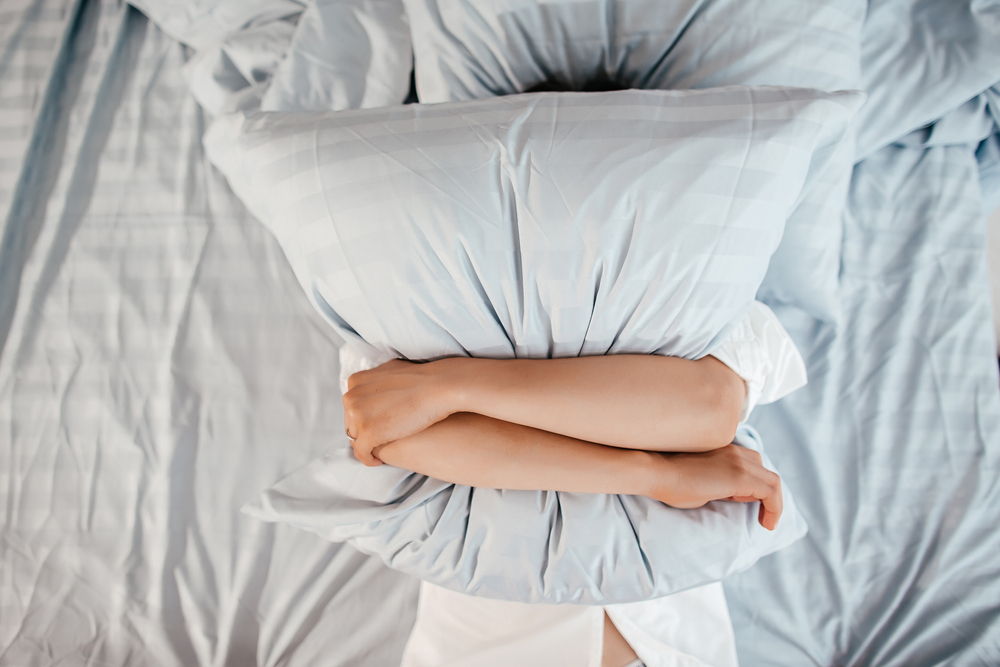Don’t let poor sleep become a nightmare
Featured Products Promotional FeaturesPosted by: Dental Design 26th July 2022

The importance of a good night’s sleep cannot be understated. Sleep provides our body with time to regulate core biological functions. It also allows us to unwind and feel refreshed when we wake up, giving us much-needed energy to perform capably. Unfortunately, modern life provides plenty of pressures that can make sleeping, well, a challenge.
There is much literature on the topic of sleep and health, but what about its effects on oral health? Sleep behaviours and oral health are often closely entwined, but many patients may not consider how their sleep behaviours play a role in the condition of their dental hygiene. Raising awareness of the importance of sleep on oral health (and all aspects of health) could help patients take steps to establish better habits at night-time. Additionally, communicating the importance of regular dental appointments can help in the identification and resolving of many disruptive sleep disorders.
The stages of sleep
There are two primary categories of sleep: non-rapid eye movement (NREM), which is comprised of 4 stages, and rapid eye movement (REM).[i] Stage 1 is a light sleep; muscle activity slows and individuals can be easily awoken. At stage 2, our brain waves become slower and our eye movements cease. In stages 3 and 4, we are in the very deep phases of sleep, with no eye movement or muscle activity.[ii] When we move into REM sleep, our heart rate increases and breathing becomes more irregular; it is thought that this phase occupies 20-25% of night-time sleep in healthy human adults.[iii] A deep sleep provides ample benefits to our mind and body; it is important for cognitive function and memory,[iv] in addition to our mood and energy.[v] A lack of sleep can be detrimental to our health; even one night of total sleep deprivation can affect the way the brain functions.[vi]
 The most common sleep disorders include insomnia, narcolepsy, restless leg syndrome and sleep apnoea.[vii] These conditions can cause significant disruption to a sleep routine, often resulting in poor sleep behaviours for those afflicted.
The most common sleep disorders include insomnia, narcolepsy, restless leg syndrome and sleep apnoea.[vii] These conditions can cause significant disruption to a sleep routine, often resulting in poor sleep behaviours for those afflicted.
With around 67% of UK adults suffering from disrupted sleep and 23% managing no more than 5 hours a night,[viii] sleep deprivation is certainly a pressing issue for healthcare providers. Many people who notice their dental health deteriorating may not have considered that a sleep disorder is the cause. However, researchix has noted the integral role that dental professionals play in the identification of sleep disorders in patients.
Sleep and oral health
Sleep bruxism is perhaps the most common sleep disorder that has drastic consequences for oral health. Not only do patients sustain wear to the structure of their teeth, but they are also at risk of muscle hypertrophy and/or pain, temporomandibular disorders and loss of periodontal support.[ix] With many individuals unaware that they are grinding their teeth whilst sleeping, the issue could continue undetected for some time, causing their dental hygiene to deteriorate substantially. Similarly, obstructive sleep apnoea has been associated with xerostomia, soft tissue irritation, gingivitis and periodontitis.[x]
Dental professionals play a unique role in the detection of these conditions. Patients who present with complaints such as bad breath, worn and/or sensitive teeth or jaw pain may have an underlying sleep disorder. Upon detection, dental professionals can offer all the relevant advice the patient may require, not only to sleep better but to improve their oral health, too.
Establish better habits
For patients whose oral health has declined due to certain sleep conditions, aiding them in establishing better oral care habits will improve the quality of their dental health, thus contributing to better health overall.
For a gentle yet effective dentifrice, dental professionals should consider recommending the Arm & Hammer™ Sensitive Pro Baking Soda toothpaste to their patients. This low abrasion toothpaste uses patented Liquid Calcium™ technology to form a shield over the teeth, protecting exposed nerves and 1100ppm fluoride to promote remineralisation. It also contains baking soda, which helps remove plaque, neutralises odour and cleans deep between the teeth and below the gumline. The Arm & Hammer™ Sensitive Pro Baking Soda is an accessible, clinically-proven solution that will aid patients in getting their oral health back on track.
Sleep is an integral requirement for good health, but far too many of us struggle to establish healthy sleep habits. Consequently, other areas of our health begin to feel the effects. Dental professionals are vital figures for patients suffering from sleep conditions; with their expert guidance and recommendations, patients can be better-equipped when taking the steps to establish improved habits for all areas of their health.
For more information about the carefully formulated Arm & Hammer™ toothpaste range, please visit https://www.armandhammer.co.uk/ or email: ukenquiries@churchdwight.com
Arm & Hammer™ oral healthcare products are available at Boots, Superdrug, Sainsbury’s, Tesco, Asda and Morrisons throughout the UK.
Author:
Charleane McInally is a professional educator for Waterpik, and dental hygienist
[i] Loh, Hui Wen, Chui Ping Ooi, Jahmunah Vicnesh, Shu Lih Oh, Oliver Faust, Arkadiusz Gertych, and U. Rajendra Acharya. 2020. “Automated Detection of Sleep Stages Using Deep Learning Techniques: A Systematic Review of the Last Decade (2010–2020).” Applied Sciences 10 (24): 8963. https://doi.org/10.3390/app10248963. [Accessed 31 Mar. 22]
[ii] American Sleep Association. 2018. “What Is Sleep? Why Is It Needed? – American Sleep Association.” American Sleep Association. March 4, 2018. https://www.sleepassociation.org/about-sleep/what-is-sleep/. [Accessed 31 Mar. 22]
[iii] Simor, Péter, Gwen van der Wijk, Lino Nobili, and Philippe Peigneux. 2020a. “The Microstructure of REM Sleep: Why Phasic and Tonic?” Sleep Medicine Reviews 52 (August): 101305. https://doi.org/10.1016/j.smrv.2020.101305. [Accessed 31 Mar. 22]
[iv] Zhang, Yujie, and Reut Gruber. 2019. “Can Slow-Wave Sleep Enhancement Improve Memory? A Review of Current Approaches and Cognitive Outcomes.” The Yale Journal of Biology and Medicine 92 (1): 63–80. https://www.ncbi.nlm.nih.gov/pmc/articles/PMC6430170/. [Accessed 31 Mar. 22]
[v] Triantafillou, Sofia, Sohrab Saeb, Emily G Lattie, David C Mohr, and Konrad Paul Kording. 2019. “Relationship between Sleep Quality and Mood: Ecological Momentary Assessment Study.” JMIR Mental Health 6 (3): e12613. https://doi.org/10.2196/12613. [Accessed 31 Mar. 22]
[vi] Eide, Per Kristian, Vegard Vinje, Are Hugo Pripp, Kent-Andre Mardal, and Geir Ringstad. 2021. “Sleep Deprivation Impairs Molecular Clearance from the Human Brain.” Brain, March. https://doi.org/10.1093/brain/awaa443. [Accessed 1 Apr. 22]
[vii] Schroeder, Kelly, and JoAnn R. Gurenlian. 2019. “Recognizing Poor Sleep Quality Factors during Oral Health Evaluations.” Clinical Medicine & Research 17 (1-2): 20–28. https://doi.org/10.3121/cmr.2019.1465. [Accessed 1 Apr. 22]
[viii] “Sleepless Cities Revealed as One in Three Adults Suffer from Insomnia.” 2017. Aviva.com. October 27, 2017. https://www.aviva.com/newsroom/news-releases/2017/10/Sleepless-cities-revealed-as-one-in-three-adults-suffer-from-insomnia/. [Accessed 1 Apr. 22]
[ix] Saczuk, Klara, Barbara Lapinska, Paulina Wilmont, Lukasz Pawlak, and Monika Lukomska-Szymanska. 2019. “Relationship between Sleep Bruxism, Perceived Stress, and Coping Strategies.” International Journal of Environmental Research and Public Health 16 (17): 3193. https://doi.org/10.3390/ijerph16173193. [Accessed 31 Mar. 22]
[x] Alansari, Reem A. 2022. “The Role of Orthodontics in Management of Obstructive Sleep Apnea.” The Saudi Dental Journal 34 (3): 194–201. https://doi.org/10.1016/j.sdentj.2022.02.001. [Accessed 1 Apr. 22]








